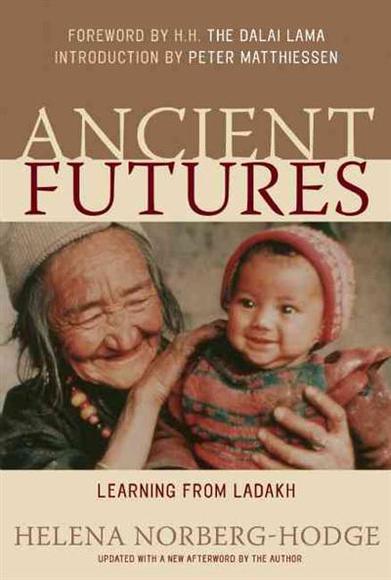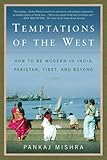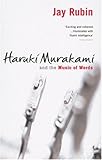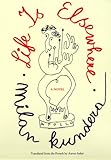 Ancient Futures: Lessons from Ladakh, by Helena Norberg-Hodge, starts with a foreword from the Dalai Lama containing the following excerpt:
Ancient Futures: Lessons from Ladakh, by Helena Norberg-Hodge, starts with a foreword from the Dalai Lama containing the following excerpt:
No matter how attractive a traditional rural society may seem, its people cannot be denied the opportunity to enjoy the benefits of modem development. However, as this book suggests, development and learning should not take place in one direction only.
Even though those lines attempt to provide balance to a book written in a manner that challenges a lot of what we consider good and desirable in the modern world, it instantly made me wary and got my defenses up about a potential hippie-like onslaught that was to follow in the pages to come.
Strangely, even as I finished reading the book, I discovered that no such onslaught materialized in its pages. I did find a strong opinionated voice in the book. It was a voice that came out of spending years with the people of the land in Ladakh, than that of an academic researcher or, as it is common these days, of a tourist who spends a week or two a year there.
The book itself was written about a time, starting 1975, that is almost a good forty-years ago. What Hodge describes in the book as a land already on the way to destroying itself in the 1980s is what I would consider still largely unspoilt, since I visited the place first in 2009. That should also provide a contrast as to how far down the road of development the land has come to where we are now.
In terms of timelines, the book is not very current. though the editions have been updated through the years since its fist publication. It does not have anything on the 2010 flash floods, which had a lot to do with same runaway development that Hodge describes in her book. Nor does it have anything on mobile phones or the internet — two things that have completely changed the modern world.
And yet, the book is every bit current as it attempts to approach the endgame of the relentless march of the modern world as an answer that was already known to the ancients, than as something we, the modern generation, are trying to decode. It challenges the fundamental concept of what development itself is in the modern world and looks at life through the prism of a way of living that is considered backward and inefficient by most of us.
For me, the book has been a phenomenal read, as it did at least shake me out of my touristy manner of thinking about a lot of the places described in the book; places I have come to visit multiple times and love. Yet, for all that love, after reading the book, I realize that I know little of those places and the people who live there. I know I have to change that now and that is largely thanks to the book.
It is fair to assess the book as one that’s written from the heart than as something that is driven purely by facts and numbers. The main thesis itself can sound as if it is an outright rejection of all things modern (Hodge does take a lot of pain to emphasize co-existence, but the anti-development tone is so strong that it is easy to miss) and it does not provide a well thought-out way forward on how to live with the same values and outlook in the modern world.
Some of those shortcomings are addressed in Hodge’s work since she wrote the book. A lot of it is centered around ‘The Economics of Happiness‘. I have not yet read the book but this TEDx talk provides a good idea as to how far forward Hodge has taken her ideas.
Thanks to a considerably pared down lifestyle in the past four-years, I have been forced to step outside what is commonly called the ‘rat race’ and re-evaluate what I am doing with my life and what is important for me. That, in all probability, is why the book resonates so well with me as it mulls over some of the questions that I have been asking myself of late.
If you are curious about what joy, happiness, peace or contentment mean for you and what are the things that represent those things for you, the book will probably resonate with you too. Or, if you want to read a passionately argued different point of view on sustainable development and local living, it will make a lot of sense.



